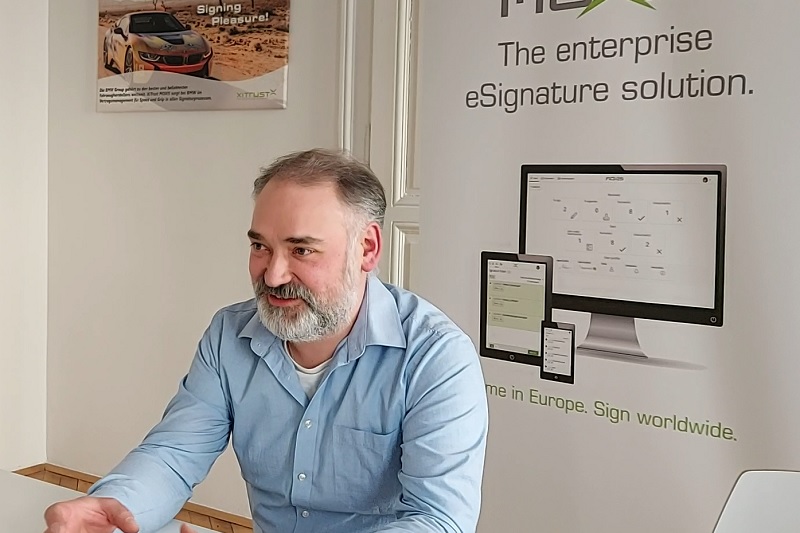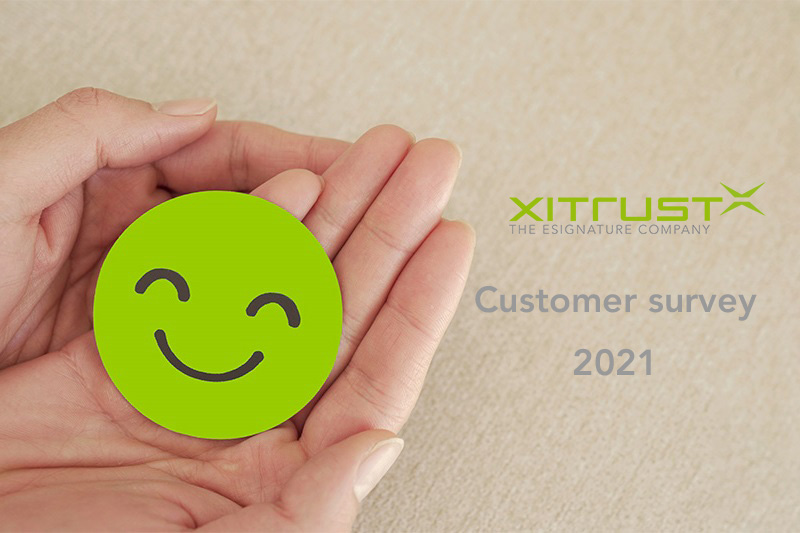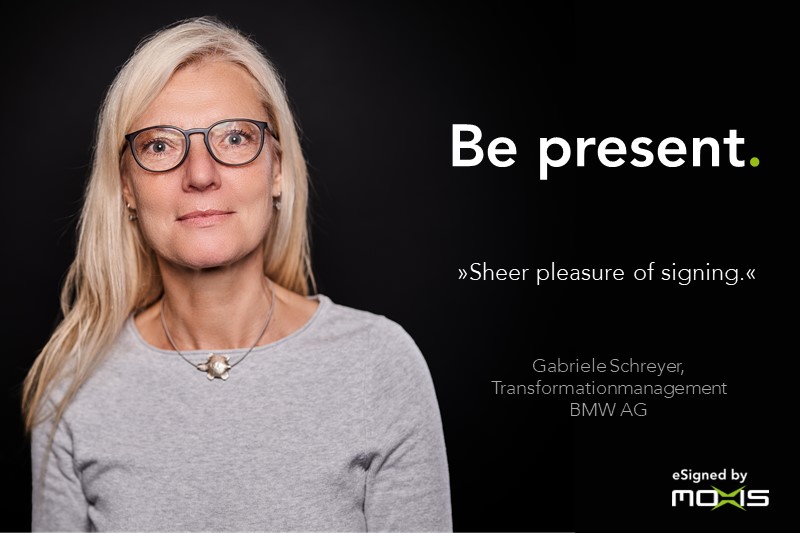Several hundred customers worldwide use MOXIS for electronic signature processes: Global players on four continents work with the eSignature platform in their subsidiaries.
All over Europe: Germany, Switzerland, Austria, Italy, Belgium and the Netherlands are some of the European locations of MOXIS. The most important overseas locations are the USA and China. MOXIS is also used there in compliance with the legal situation across the entire industry spectrum: Industrial and infrastructure companies, telecommunication providers, personnel service providers or even trade and public authorities give their employees the opportunity to digitally sign in daily business processes.
"There is no internationally uniform legal framework for electronic signatures," says Andreas Koller, CEO XiTrust Germany. "Hence, it is of central importance that MOXIS flexibly adapts to the respective requirements of a jurisdiction. In this way, MOXIS ensures planning and investment security for all users worldwide!" Electronic signatures are legally valid and enforceable in almost every industrialised country in the world. However, the laws on electronic signatures differ from country to country. "This is why it is advisable to develop the company policy for electronic signatures together with MOXIS. Our solution works wherever our customers do business – worldwide, on four continents," says Koller.
International legal differences
In the EU area, the eIDAS Regulation provides the legal framework. This document, which officially has the unwieldy title "Regulation (EU) No 910/2014 of the European Parliament and of the Council of 23 July 2014 on electronic identification and trust services for electronic transactions in the internal market and repealing Directive 1999/93/EC", regulates the use and validity of electronic signatures. This regulation has been applicable since mid-2016, according to which only the qualified electronic signature has the status of a handwritten signature. In an international comparison, the situation is different. Many countries, including the USA, New Zealand, Australia and Canada, have minimalist, less strict laws. They allow electronic signatures with few legal restrictions: Simple electronic signatures are legally binding and recognised in court - even if they are not considered qualified under current EU law and are legally treated accordingly.
One thing, however, is a globally unifying element despite different legal situations: laws on electronic signatures generally require some form of consent. For companies using MOXIS worldwide, it is sufficient to make an internal agreement with the employees in the respective branch office. Andreas Koller: "In this case, the qualified electronic signature must be accepted internally within the company in each country."
The eSignature in the USA and China
USA
The ESIGN ACT (Electronic Signatures in Global and National Commerce ACT) of 2000 states that a signature cannot be denied legal effect or enforceability merely because it has been executed in electronic form. The minimum legal requirements for electronic signatures allow their use for virtually all types of agreements. However, it is essential to obtain the prior consent of all parties involved in order to conduct business electronically accordingly.
China
Article 14 of the Electronic Signature Law of the People's Republic of China accepts electronic signatures as legal and enforceable, while Articles 7 and 8 regulate their admissibility. Chinese law is guided by a combination of the eIDAS Regulation as well as the UNCITRAL Model Laws and United Nations Conventions on Electronic Communications in International Contracts. China recognises simple electronic signatures as legally valid and enforceable. Countries that follow this model allow internationally established companies to choose between different forms of signatures: electronic signatures will be considered valid until proven otherwise, regardless of their quality.
One company – 200,000 eSignatures yearly
However, the highest quality form of electronic signature is not always and in all signature transactions necessary. Where the business risk is considered less high and the legislator does not stipulate otherwise, many companies use the standard electronic signature (SES) for everyday business agreements. An internationally operating XiTrust client exemplifies how working with MOXIS works worldwide: 1,000 employees in 40 affiliated subsidiaries perform 200,000 electronic signatures with MOXIS worldwide every year. With subsidiaries in Europe, China, Indonesia and the USA, this company is obliged to fulfil the respective national requirements for electronic signatures and at the same time, implement its own security policy. "This is possible with MOXIS, as our software solution supports all common signature types," Koller explains. "The flexibility of MOXIS ensures legal compliance, regardless of which branch of the company it is used in and in which country."
As a result, MOXIS is used in a wide range of applications by users worldwide. Used in quality management, sales and purchasing as well as in human resources, a large number of documents are electronically signed with MOXIS in Indonesia, China and the USA – in different signature qualities depending on the area-specific requirements. MOXIS is used to sign test reports, factory certificates, orders, target agreements and order confirmations on four continents.
Signature quality worldwide
MOXIS supports the employees of global and medium-sized companies in all signature processes with different signature qualities that are accepted worldwide. The signature processes do not differ, regardless of which part of the world is signed with MOXIS. This also applies to external suppliers or customers: An e-mail request is sent to each signatory from MOXIS. The signatory clicks on the link embedded in the email, which grants access to the document. Extensions through two-way authentication are possible. In addition, it is possible to include biometric signatures in the process. To increase security, many companies add a second form of signer authentication for more sensitive documents. In this case, the external signatory receives an additional password to access the document.
The protection of the highest risk and all compliance requirements, on the other hand, is only guaranteed by the qualified electronic signature (QES) for the legally valid signing of documents with external partners, e.g. in onboarding processes. In this case, the external signatory must have a digital identity. More and more internationally operating companies are using the MOXIS platform MEQA for signature processes with external forces: it ensures that no external signatory needs access to the company's own MOXIS installation to set their signature, in any quality and worldwide.




